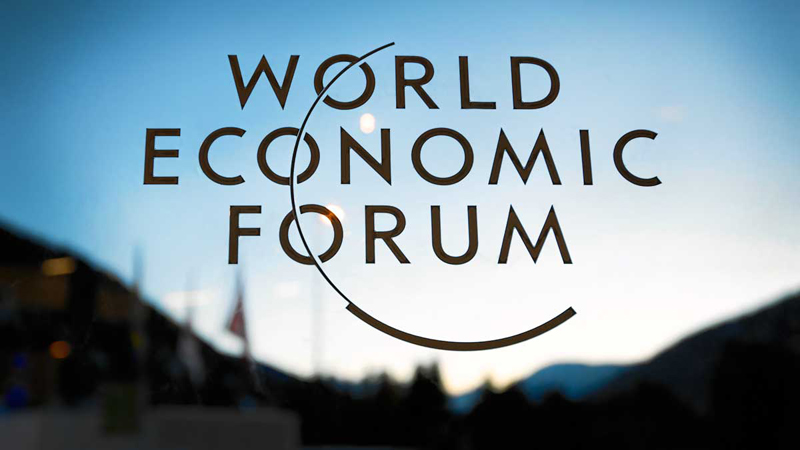World Economic Forum’s Annual Global Competitiveness Report examines that recovery from COVID-19 can build productive, sustainable, and inclusive economic systems.
The World Economic Forum (WEF) released its Global Competitiveness Report 2020 today (December 16). The long-standing Global Competitiveness Index (GCI) rankings have been paused.
A special edition, published this year, elaborates on the priorities for recovery and revival and considers the building blocks of a transformation towards new economic systems.
The report assesses the features that helped countries become more effective in managing the pandemic and provides an analysis of countries, which are best poised for an economic transformation towards systems that combine productivity, people, and planet targets.
Almost one year after the onset of the COVID-19 pandemic, a deep economic recession has triggered, which continues to have profound economic and social consequences.
ALSO READ
World Economic Forum Holds Country Strategy Dialogue on Pakistan
While no nation has emerged unscathed, this year’s Global Competitiveness Report finds that countries with advanced digital economies and digital skills, robust social safety nets, and previous experience dealing with epidemics have better managed the impact of the pandemic on their economies and citizens.
The report states,
The World Economic Forum has long encouraged policy-makers to broaden their focus beyond short-term growth to long-term prosperity.
This report outlines the priorities for making economies more productive, sustainable, and inclusive as the world emerges from the crisis.
“The stakes for transforming our economic systems simply could not be higher,” said Klaus Schwab, Founder and Executive Chairman of the World Economic Forum.
Amir Jahangir, Chief Executive Officer of Mishal Pakistan and the Country Partner Institute of the Future of Economic Progress System Initiative, World Economic Forum, said, “The success stories from Pakistan in the light of the Global Competitiveness Index 2020 is the performance and strengthening of the institutions, scale-up of digitization both at the public and private sectors.
“The surge for online services and data has increased more than 200 times in COVID-19 (Coronavirus) time period, both at the domestic and international level,” he said.
He further added that COVID-19 has locked down communities and businesses into isolated environments, making the entire world go into Digital Incubation Ecosystems. He said that the work-from-home model has led to an increase in all levels of digital consumption across all strata of society.
ALSO READ
Finance Adviser Addresses World Economic Forum on Country Strategy Dialogue
The Pakistani businesses have been forced to deploy digital solutions across all segments of the society, including Education, Business Processing, Services, and non-manufacturing, etc.
He further said, “The Government needs to devise a system to use digital technologies for the welfare of the people. Also, tax regimes on technologies that help fight COVID-19 and contribute to data generation should be revisited to create more value for the citizens.”
The report identified factors that registered the most negative for emerging and developing economies as Pakistan are the business costs of crime and violence, judicial independence, organized crime, the extent of market dominance, and public trust in politicians.
According to the findings of the reports, the factors that registered the most positive shifts for emerging and developing countries are the government’s responsiveness to change, the efficiency of train services, venture capital availability, country capacity to attract talent, and collaboration within a company.
In recognition of the extraordinary developments in 2020 and the unified global effort required to tackle the health crisis and its socioeconomic fallout, the Global Competitiveness Index rankings have been suspended for 2020. The 2021 edition will see a return to benchmarking and providing a refreshed framework to guide future economic growth.
The report reveals that countries like Netherlands, New Zealand, Switzerland, Estonia, and the United States with advanced digital economies and digital skills have been more successful at keeping their economies running while their citizens worked from home. These countries have performed well on this measure.
ALSO READ
PM Imran Khan Urges the World to Tackle Climate Change on Pakistan Strategy Day
In advanced economies, business leaders saw increased market concentration, a marked decline in competition for services, a reduced collaboration between companies, and fewer available skilled workers in the employment market as the shift to digitally-enabled work accelerated.
On the positive side, leaders saw greater government response to change, improved collaboration within companies, and increased availability of venture capital.
In emerging markets and developing economies, business leaders noted an increase in business costs related to crime and violence, a reduction in judicial independence, a further reduction in competition and growing market dominance, and stagnating trust in politicians.
The business leaders expressed positive views on government response to change, collaboration within companies, and venture capital availability. They also noted an increase in the capacity to attract talent, potentially facilitated by the digital labor market.
Saadia Zahidi, Managing Director, World Economic Forum, expressed her views regarding this. She remarked,
During this time of profound uncertainty, the health crisis and economic downturn have forced a fundamental rethink of growth and its relationship to outcomes for people and the planet. Policy-makers have a remarkable opportunity to seize this moment and shape new economic systems that are highly productive while growing shared prosperity and environmental sustainability.
Key insights from the report included a focus on Digital infrastructure investments, a Greener economy, Longer-term investments, Progressive taxation, Expanded public services as some of the ways the economies of the world can progress in post-COVID times.
For this report, the data from 37 countries was mapped against the 11 priorities outlined in the report and found that while no country is fully prepared for recovery and economic transformation, some are better placed than others.
The report estimates that a 10 percent increase in readiness scores could lead to a $300 billion increase in the GDP figures of these 37 countries combined.
ALSO READ
Pakistan’s Business Optimism Index Improves Significantly Post COVID-19 Lockdown
The report considers pathways for revival and transformation in four areas, i.e., the enabling environment, human capital, markets, and innovation. The report advocates a gradual transition from furlough schemes to a combination of proactive investments in new labor market opportunities, a scaling-up of reskilling and upskilling programs, and safety nets to help drive the recovery.
In the longer term, leaders should work to update education curricula, reform labor laws, and improve the use of new talent-management technologies.
While financial systems have become significantly stable since the last financial crisis, they need to be more inclusive, and growing market concentration and raising barriers to the movement of goods and people risk hampering the transformation of markets.
The report recommends introducing financial incentives for companies to engage in sustainable and inclusive investments while updating competition and anti-trust frameworks. Although entrepreneurial culture has flourished in the past decade, the creation of new firms, breakthrough technologies, and products and services that deploy these technologies has stalled.
The report recommends that countries expand public investment in R&D while encouraging it in the private sector. In the longer term, countries should support the creation of “markets of tomorrow” and motivate firms to embrace diversity to enhance creativity and market relevance.


























